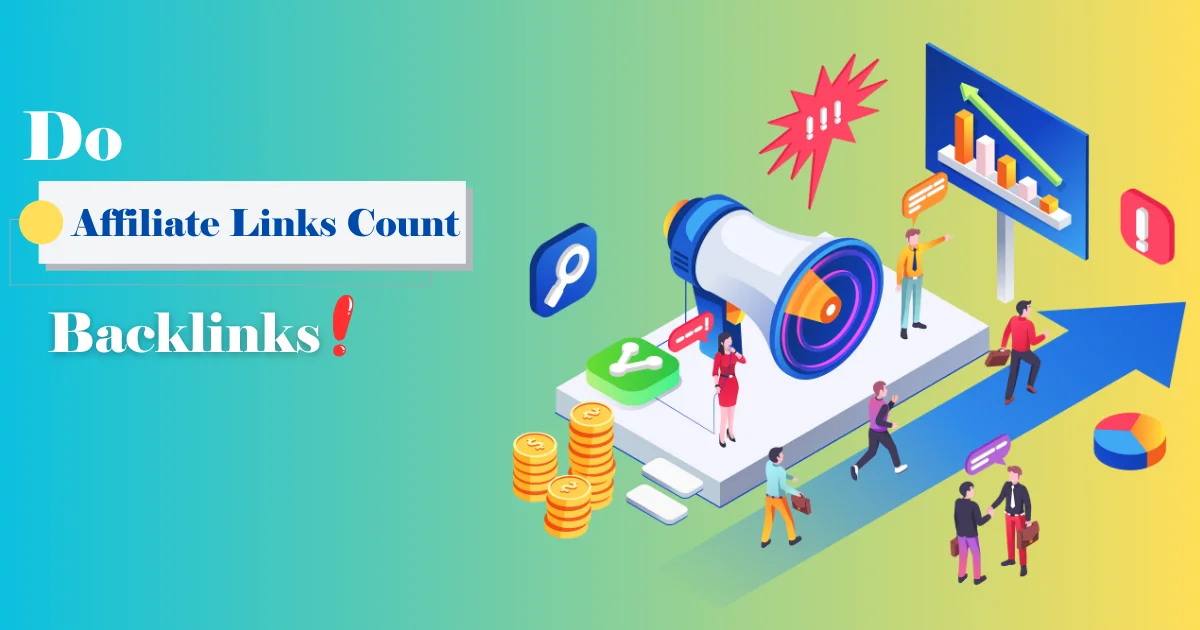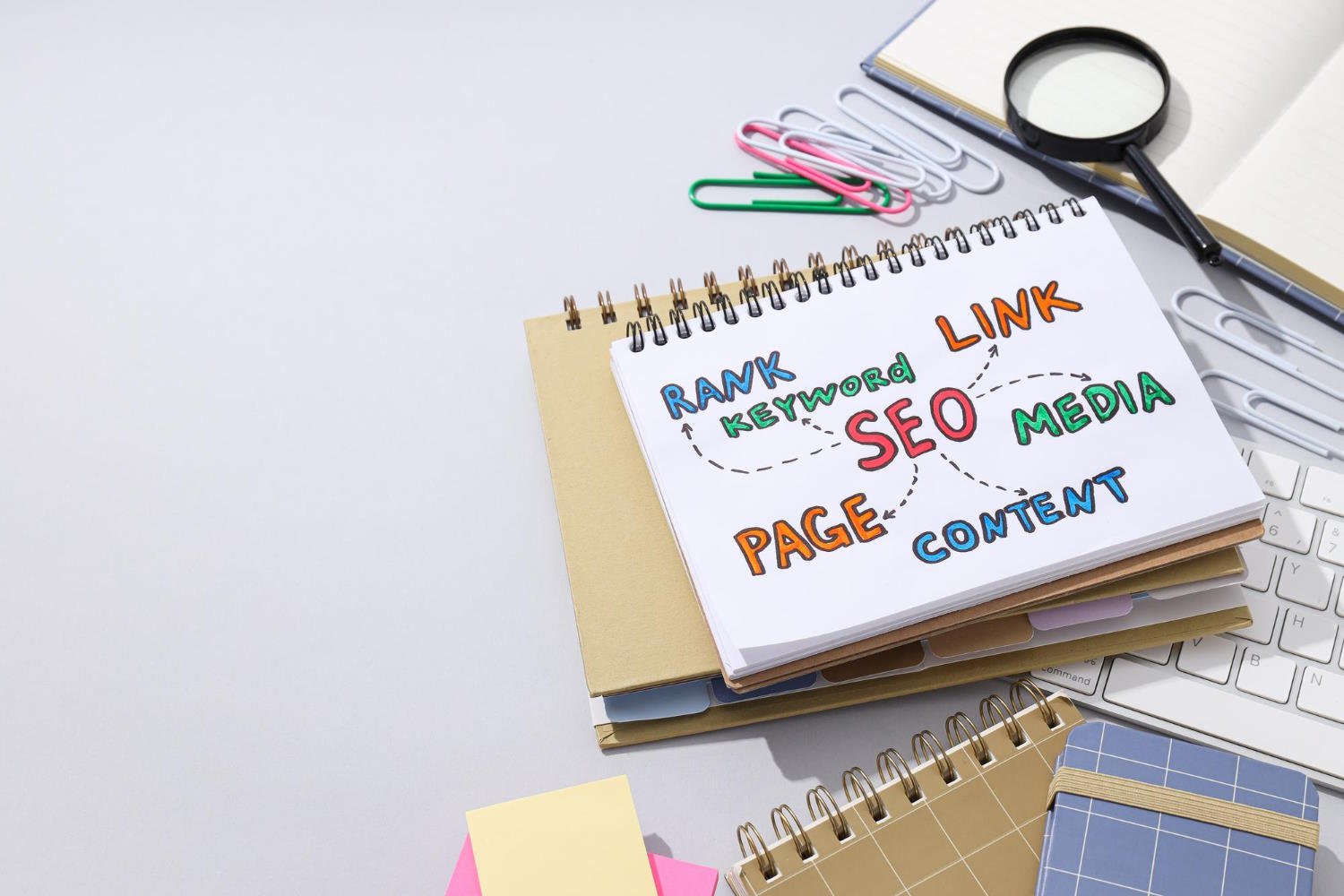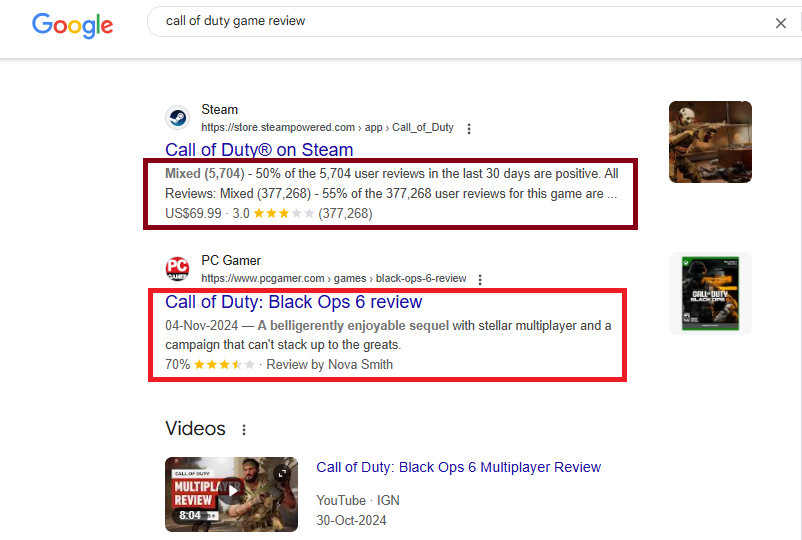In SEO, one of the most frequently discussed topics is the role of affiliate links and how they affect your website’s overall performance.
- Do affiliate links count as backlinks?
If so,
- How do they affect your search engine rankings?
Marketers often see affiliate links as a potential goldmine for boosting their rankings, while others worry they might invite penalties. So, what’s the truth?
We’re going to clarify the role of affiliate backlinks in SEO and how to index them. We’ll also provide detailed reports with insight into why some links carry the No Follow attribute and how it affects search engine optimization performance. By the end of this complete guide, you’ll have a better understanding of how to leverage these links. Just like any SEO professional, it’s important to ensure the natural appearance and successful indexation of your backlinks.
What Are Backlinks?
Before discussing affiliate links’ SEO benefits, we must define backlinks. Simply, a backlink is a link from one website to another. These are also known as inbound links or incoming links. In the context of SEO, links are like trust signals for your site, telling search engines like Google, Bing, and Yahoo that your content is valuable and trustworthy.
For instance, when your content connects to a high-quality and relevant website, it sends positive signals to search engines. It sends positive signals to search engines, showing that your website is trustworthy and offers useful information. In return, search engines reward this by improving your rankings in the search engine results pages (SERPs).
Factors that Determine Backlink Quality:
- Relevance:
Is the website you want to link to relevant to your genre? Getting a backlink from a reputable and relevant website is far more powerful than connecting with thousands of unrelated or low-quality sites.
- Authority:
How authoritative is the linking site? Backlinks from high-authority websites like government, educational, or well-established industry sites are more valuable than those from unfamiliar or spammed sites.
- Naturalness:
Does the link appear to be a genuine endorsement, or does it seem forced or overly promotional? Search engines value natural-looking links that flow with the content rather than ones that seem to be placed purely for SEO purposes.
When a website links to yours, it’s not just a connection. It’s a transfer of authority. This transfer, known as link juice, carries valuable digital benefits. By receiving link juice from high-quality backlinks, your website gains authority and can experience a boost in search engine rankings.
Understanding Affiliate Links
Now that we know what backlinks are, let’s talk about affiliate links and their role in SEO. An affiliate link is a unique URL that contains tracking information. When a user clicks on this link and makes a purchase, the person who shared it earns a commission. These types of URLs are common in content marketing, especially among bloggers, influencers, and online publishers who promote products or services in exchange for a percentage of sales.
Do affiliate links count as backlinks?
Yes, affiliate links do count as backlinks because they are essentially hyperlinks pointing to a website. However, unlike regular links, affiliate links often have specific attributes that may affect how search engines view them.
How Affiliate Links Affect SEO
While affiliate links count as backlinks, their impact on SEO is often less significant than a regular backlink due to several reasons:
-
1. The “no-follow” attribute
Mostly, affiliate links include a no-follow attribute or tags, which instruct search engines not to pass link juice or SEO value through the link. This attribute basically signals to search engines like Google, Bing, or Yahoo that the link should not influence the ranking of the website it points to. Affiliate marketers commonly use the nofollow tag for paid connections, as Google aims to avoid manipulating rankings through commercial relationships.
-
2. Relevance and authority.
Even with a nofollow tag, affiliate links from authoritative and relevant websites can still provide SEO benefits, similar to regular backlinks. While they may not pass direct link juice, they can increase brand visibility and traffic, which can indirectly boost your rankings.
-
3. The Naturalness
Search engines favor links that appear to be natural rather than forced placements. Search engines are less likely to flag and stuff these links if they seamlessly integrate into relevant content and appear to genuinely help users. Search engines may become concerned if they appear overused or purely promotional.
The Role of Backlink Indexing in SEO
Your search engine optimization efforts can only benefit from indexed affiliate links. Backlink indexing refers to the process by which search engines recognize, crawl, and count your backlinks toward your site’s SEO ranking. Without proper indexing, even the highest-quality backlinks will have no impact on your site’s rankings.
Why Indexing Is Important
Search engines like Google need to find your backlinks first. Some backlinks index automatically; others took longer or never did. This is where indexing tools come into play. Below is a list of the top eight best backlink indexing tools:
- Rapid URL Indexer
- Junia AI’s Indexer
- Indexmenow
- Elite Link Indexer
- GIndex
- Indexification
- Instant Link Indexer
- Link Processor
While some tools require payment, others are available for free. The choice between free and paid options depends on your specific needs. In this guide, we will focus on Rapid URL Indexer. For information about other tools, you can explore the article on the 8 best backlink indexing tools or use Google for more in-depth knowledge.
Can a rapid URL indexer improve international SEO efforts?
Webmasters can use this indexer to speed up the recognition and indexing of their backlinks by search engines. If you’ve built a large number of backlinks, especially for new content, using a tool like RUI can accelerate the high indexing process, ensuring that those backlinks start contributing to your SEO efforts sooner.
With this local SEO rapid URL indexer tool, you can submit your URLs to Google Index and Bing, increasing the likelihood that your links will be crawled and indexed in a timely manner.
Why Some Backlinks Have No Follow
Not every backlink generates link juice. Many websites use a nofollow tag on their links, especially for affiliate links or sponsored content. The nofollow attribute tells search engines not to pass any SEO value through the link. This explains why search engines often mark backlinks in blog comments, sponsored posts, or affiliate promotions as nofollow.
Here’s why some backlinks have the nofollow attribute:
- Affiliate Links: Since these are considered paid endorsements, they are often nofollowed to prevent ranking manipulation.
- Sponsored Content: Advertisements and paid sponsorships typically include nofollow tags, as these are not considered organic placement of the linked content.
- User-Generated Content: Links in user-generated sections of a website, such as blog comments or forum posts, are often marked as nofollow to prevent spamming.
How to Ensure Your Backlinks Get Indexed
Ensuring the indexing of your backlinks is crucial to optimizing their SEO benefits. Here are some steps you can take to improve indexing:
1. Prioritize high-quality links.
Focus on acquiring high-quality backlinks from authoritative websites within your niche. Your website is more likely to index these quickly and pass significant value.
2. Use tools like the Rapid URL Indexer.
Tools like SEO agency rapidurlindexer.com are valuable for speeding up the indexing process. You can accelerate the recognition of your backlinks and their contribution to your SEO efforts by directly submitting your URLs to Google.
3. Monitoring
Regularly monitor your backlink profile using tools like Google Search Console, Ahrefs, or SEMrush. These tools assist you in tracking the indexers and contributors to your site’s performance while also enabling you to disavow any harmful links that could negatively impact your rankings.
Best Practices for Using Affiliate Marketing and Backlink Indexing
To make the most of your backlinks and affiliate links, follow these best practices:
1. Focus on quality, not quantity.
Acquiring as many backlinks as possible is not sufficient. The focus should be on getting high-quality backlinks from reputable websites that are relevant to your industry. A handful of high-authority backlinks is far more valuable than hundreds of low-quality ones.
2. Natural Link Placement
Place your backlinks and affiliate links naturally within the content. Overly promotional links can look spammy and may raise red flags with search engines. Make sure the links are relevant to the content and add value to the reader.
3. Use no-follow tags for affiliate links.
To avoid penalties or SEO issues, use the nofollow tag on your affiliate links. This tells search engines that these links are paid endorsements and should not pass link juice, reducing the risk of penalties for manipulative link-building practices.
4. Submit URLs for indexing.
To ensure that search engines crawl and count your backlinks, use tools like the backlink indexer RapidURLIndexer.com to speed up the backlink indexing process.
5. Regularly Audit Your Backlinks
Use Google Search Console or Ahrefs to regularly audit your backlink profile. Remove or disavow any low-quality or spammy links that could harm your website performance.
Final Words
Although affiliate links are considered backlinks, factors such as the nofollow attribute limit their direct SEO value. However, when used strategically and naturally, affiliate links can still drive traffic, enhance visibility, and even lead to other valuable backlinks. The key to maximizing the SEO benefits of any link is to ensure it is relevant, natural, and placed on authoritative websites.
Whether you’re using affiliate links, building backlinks, or working on getting those backlinks indexed, always keep search engine optimization best practices in mind, and remember that quality and relevance should always be your top priorities.








